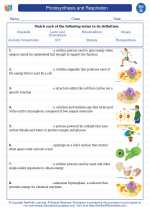Gene
A gene is a segment of DNA that contains the instructions for making a specific protein or set of proteins. Genes are the basic unit of heredity and are passed down from parents to offspring. They play a crucial role in determining the traits and characteristics of an organism.
Structure of a Gene
A typical gene consists of two main parts: the coding region and the regulatory region. The coding region contains the actual sequence of DNA that is transcribed into messenger RNA (mRNA), which is then translated into a protein. The regulatory region controls when and where the gene is expressed, or "turned on."
Functions of Genes
Genes carry the instructions for protein synthesis and are involved in various biological processes, including growth, development, and maintenance of the body. They also influence an organism's susceptibility to certain diseases and response to environmental factors.
Study Guide
- What is a gene?
- What are the two main parts of a gene?
- What is the function of the coding region?
- What does the regulatory region of a gene control?
- How do genes contribute to the traits and characteristics of an organism?
[Gene] Related Worksheets and Study Guides:
.◂Science Worksheets and Study Guides Seventh Grade. Photosynthesis and Respiration
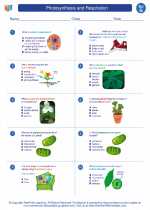
 Worksheet/Answer key
Worksheet/Answer key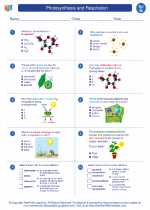
 Worksheet/Answer key
Worksheet/Answer key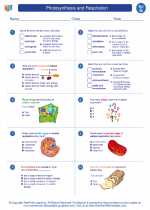
 Vocabulary/Answer key
Vocabulary/Answer key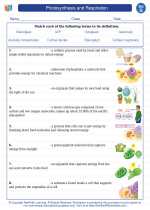
 Vocabulary/Answer key
Vocabulary/Answer key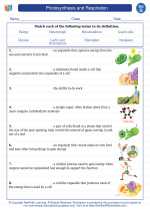
 Vocabulary/Answer key
Vocabulary/Answer key